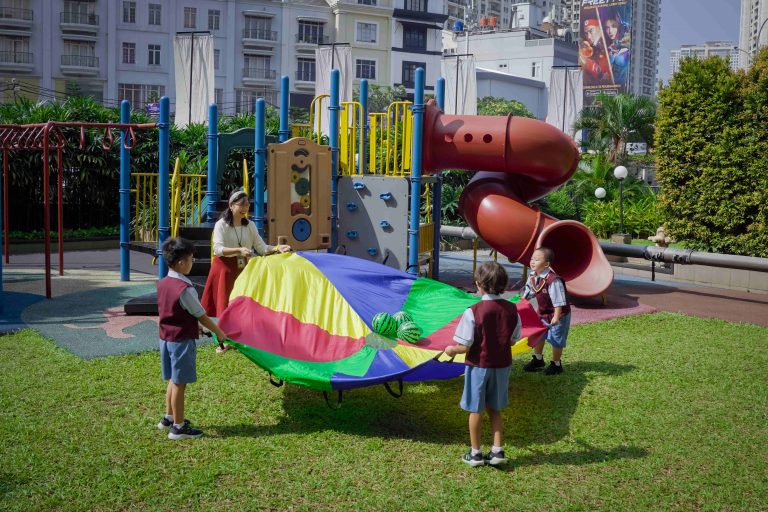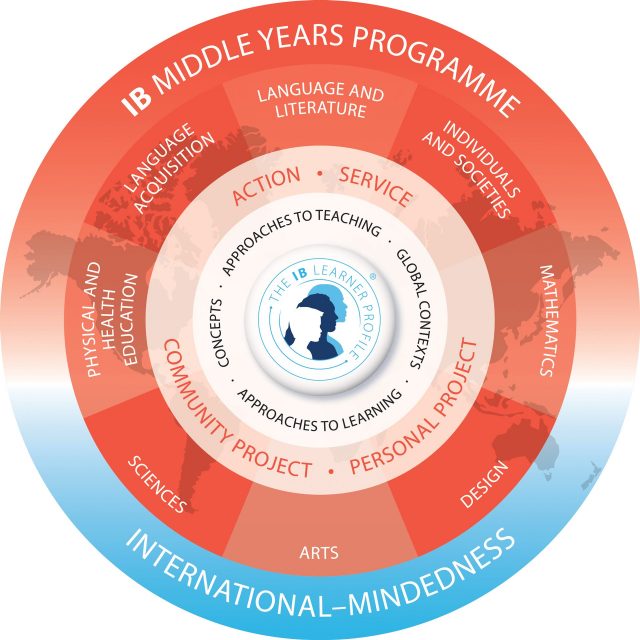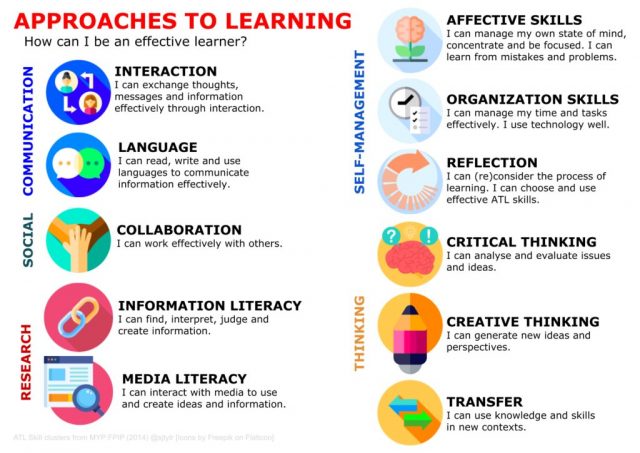IB Skills MYP and Approaches to Learning

Talking about international education, the International Baccalaureate (IB) Middle Years Programme (MYP) stands out as a comprehensive educational framework. One of the central components is IB skills MYP, including the Approaches to Learning (ATL). These elements lie at the heart of holistic international education, enabling students to thrive in both academic and real-world contexts.
It is designed to empower students to become self-regulated, intrinsically motivated learners. Understanding the significance of the skills and the approaches is crucial for navigating the dynamic landscape of modern education.
Understanding About IB Skills MYP
First of all, the Middle Years Programme (MYP) is an integral component of the International Baccalaureate (IB) framework, designed to cater to students aged 11 to 16.
MYP revolves around a concept-driven curriculum, emphasising interconnectedness and real-world application across disciplines—a hallmark of quality international secondary school education. A distinctive feature of MYP is its emphasis on Approaches to Learning (ATL) skills.
The IB skills MYP encompass a range of abilities that students acquire and refine throughout their educational journey. These skills serve as a foundation for learning independently and collaboratively.
Also Read: International Baccalaureate Programme with Its Unquestionable Qualities
Approaches to Learning in MYP
Approaches to Learning (ATL) in MYP revolve around helping students “learn how to learn.” These skills are not only crucial for academic success but also for preparing students for responsible participation in local and global communities. At BINUS SCHOOL Simprug, we integrate these skills into every classroom experience, reinforcing our commitment to nurturing confident, globally minded learners. As the best IB school in Jakarta, we provide students with a dynamic learning environment that prepares them for future academic excellence and personal growth.
At its core, ATL is a set of fundamental skills that empower students to become self-regulated, intrinsically motivated learners. These skills encompass thinking, social, research, self-management, and communication skills.
The MYP curriculum integrates ATL into teaching strategies, focusing on inquiry-based, contextual learning. Through ATL, students learn to think critically, collaborate effectively, manage their time, and communicate ideas clearly.
Ultimately, ATL plays a pivotal role in preparing students not just academically but for responsible and engaged participation in local and global communities.
Reasons Why Approaches to Learning in MYP is So Important
Overall, the IB skills MYP and ATL are pivotal in shaping students into autonomous and engaged learners. Understanding the importance of ATL involves delving into four key aspects that underscore its significance, including:
-
Subject Objectives
ATL skills seamlessly integrate with MYP subject objectives, fostering a dynamic learning environment.
The emphasis on inquiry-based learning allows students to explore subjects more deeply, connecting theoretical knowledge with real-world applications.
By intertwining ATL with subject objectives, MYP cultivates a holistic educational experience.
-
Metacognition
A cornerstone of ATL, metacognition empowers students with the ability to reflect purposefully on their learning.
This involves understanding one’s own learning processes, evaluating the effectiveness of strategies, and developing clear insights into individual strengths and weaknesses.
Therefore, metacognitive skills lay the foundation for lifelong learning and independent academic success.
-
Transfer
The transferability of ATL skills across disciplines and real-life scenarios is a distinctive feature.
This is because MYP encourages students to apply their learning in unfamiliar situations, promoting a comprehensive understanding beyond subject-specific boundaries.
This emphasis on transferability prepares students for diverse challenges in both academic and real-world contexts.
-
Common Language
Last but not least, the IB skills MYP from all the previous approaches provide a common language that bridges communication between students and teachers.
This shared vocabulary enables effective reflection and articulation of the learning process.
It not only enhances the teaching and learning experience but also contributes to creating a cohesive and collaborative educational community. This shared understanding supports stronger teacher–student relationships, encouraging open dialogue and continuous feedback—key aspects of inquiry-based learning.
Also Read: MYP Inquiry Questions: Types and Examples
Approaches to Learning Skills Categories and Their Clusters
Regarding IB skills MYP, there is an innovative framework known as Approaches to Learning (ATL) skills, which are organised into several developmentally appropriate clusters.
These clusters, categorised into five main areas, namely Thinking, Research, Social, Communication, and Self-Management, embody a holistic approach to learning and personal growth. Here are the details:
-
Thinking
Under the thinking category, ATL skills encompass critical thinking, creative thinking, and transfer skills.
-
Critical Thinking
Critical thinking involves the learner-initiated use and practice of active information-processing and retrieval strategies.
In practical terms, this means encouraging students to observe carefully, recognise problems, and gather relevant information to formulate well-grounded arguments.
An example from real-life classroom scenarios could be students critically evaluating different historical perspectives and forming reasoned conclusions.
-
Creative Thinking
This cluster delves into the skills of invention and developing ideas that never existed before.
In the classroom, students might engage in brainstorming sessions, using mind maps to generate innovative ideas and solutions.
For instance, during a science project, students could employ lateral thinking to make unexpected connections and propose novel hypotheses.
-
Transfer Skills
The ability to transfer skills and knowledge across disciplines is a key aspect of ATL.
In this approach, students are encouraged to apply effective learning strategies in various subject groups and use their knowledge in unfamiliar situations.
An example could be a student utilising research skills developed in science class to gather information for a humanities project, showcasing the interconnectedness of their learning.
-
Research
Research competencies in IB skills MYP include information literacy and media literacy, each with its own approach below.
-
Information Literacy
In an era dominated by information, students need to develop the skills to collect, record, verify data, and make informed choices about information sources.
An example of the application of information literacy could involve students critically evaluating sources for a research project, and distinguishing between reliable and biassed information.
-
Media Literacy
The digital age demands proficiency in interacting with various media to use and create ideas and information. Students might explore media interpretations of events and ideas, creating awareness of the impact of media representations.
As an example in a practical setting, this could involve students analysing and creating content for digital platforms.
-
Social
The social category revolves around collaboration skills, as elaborated in the following explanation.
-
Collaboration
Working effectively with others is a skill embedded in the social cluster. Within this approach, students will practise empathy, delegate responsibilities, and actively participate in group tasks.
An illustration could be students collaborating on a project, each contributing their strengths to achieve a common goal.
-
Communication
Communication skills involve the effective exchange of thoughts, messages, and information. This includes various forms of communication such as written and oral, as well as utilising different media to convey ideas.
-
Communication Skill
This cluster emphasises exchanging thoughts, messages, and information effectively through interaction.
In a classroom scenario, students might engage in activities such as giving and receiving meaningful feedback, using appropriate forms of writing for different purposes, and participating in digital social media networks.
-
Self-Management
Self-management in IB skills MYP covers affective, organisational, and reflective aspects, as described below.
-
Affective
Managing someone’s state of mind is a crucial aspect of self-management. Within this approach, students can practise mindfulness, focus, and strategies to overcome distractions.
An application example could be students reflecting on their emotional responses to challenging tasks and employing strategies to maintain a positive mindset.
-
Organisational
Time and task management are foundational to success in both personal and academic realms.
For instance, students may plan short and long-term assignments, set challenging yet realistic goals, and use technology to enhance productivity.
-
Reflective
The ability to reconsider and evaluate learning experiences is encapsulated in the reflective cluster.
For example, students can keep journals to record reflections, identify strengths and weaknesses in their learning strategies, and consider ethical, cultural, and environmental implications.
In conclusion, the IB Skills MYP and Approaches to Learning (ATL) form the cornerstone of the Middle Years Programme’s holistic philosophy. These skills not only prepare students academically but also shape adaptable, empathetic individuals ready to engage with global challenges. If you’re looking for an international secondary school in Jakarta that offers world-class education through the IB framework, BINUS SCHOOL Simprug is your ideal choice. Explore how our students benefit from the IB MYP’s skills-based approach, delivered in a nurturing, future-focused environment. To experience it in the IB framework, consider BINUS SCHOOL Simprug as the best IB school in Indonesia!
References:
https://www.wcpss.net/Page/15023
https://isa.edu.gr/backend/vendor/ckeditor/plugins/fileman/Uploads/Inner%20pages%20documents/MYP/atl_skills_approaches_to_learnin.pdf
https://sites.google.com/ambrit-rome.com/mypcentral/myp-framework/atl-skills
https://learn.toddleapp.com/blog-post/introduction-to-atls-in-the-myp/
https://guide.fariaedu.com/myp-personal-project/setting-a-goal/atl-skills



